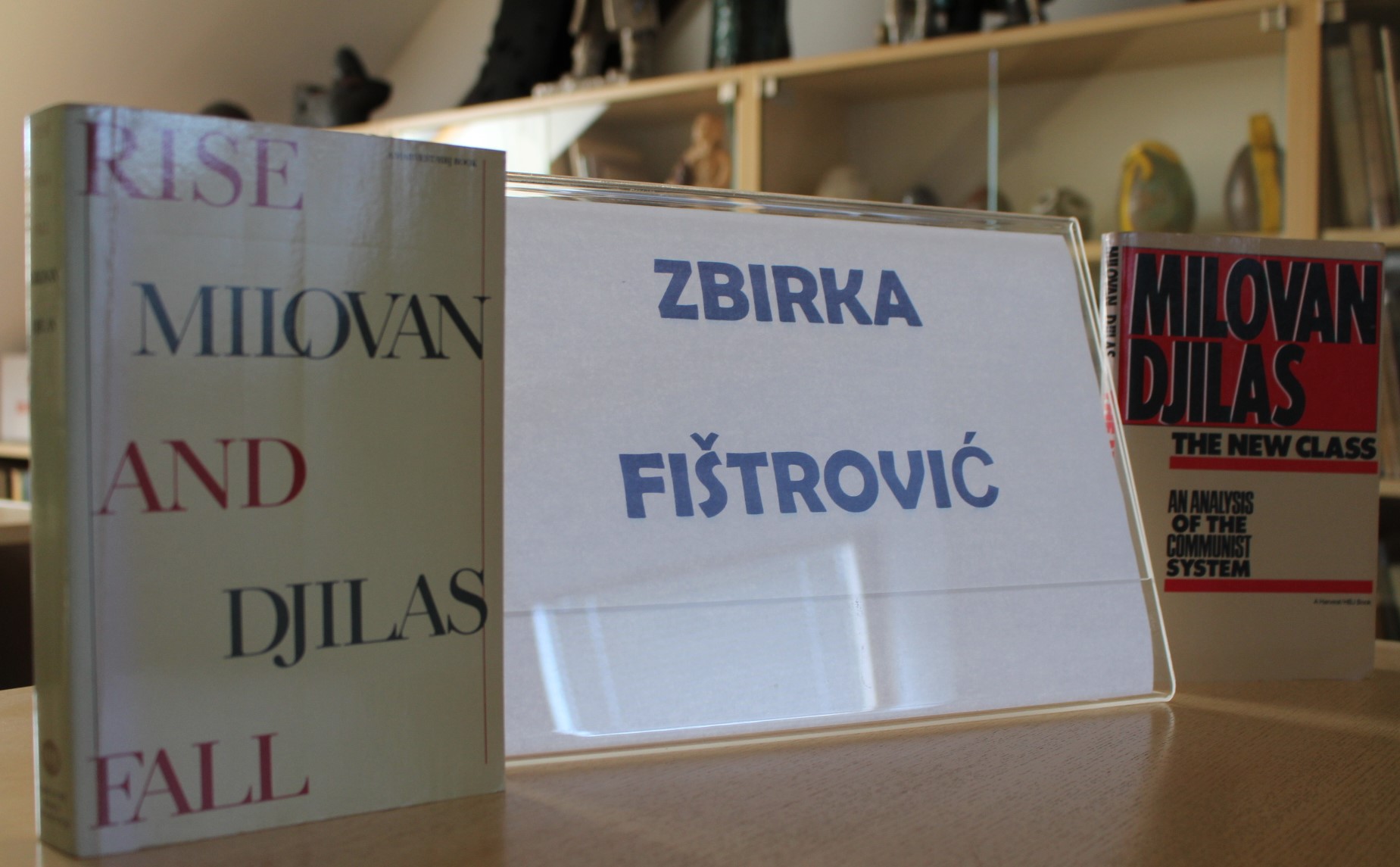The Fištrović Collection is a part of the Science and Study Department of the Fran Galović Library and Reading Room in Koprivnica. The Collection consists of English language books which were donated by Olivia Fištrović, a Croatian immigrant living in Chicago.
Olivija Fištrović visited Croatia and her hometown, Koprivnica, and its environs in 2000, and out of professional curiosity, since she was working at the hospital library in Chicago, she also visited the Fran Galović Library and Reading Room in Koprivnica. After talking with library director Dijana Sabolović-Krajina, Olivija Fištrović decided to donate a part of her library of books in English to the Fran Galović Library. The first books arrived in the Library as early as 2001, the largest part of the books arrived in the following year, while smaller quantities of books continued to arrive until 2005. Olivija Fištrović assumed the entire administrative, logistical and financial side of delivering the books.
Dijana Sabolović-Krajina considers 2002 as the year of establishment of the Fištrović Collection, because that was the year when the Library decided that Olivija Fištrović's donation should be called the Fištrović Collection and when the first books became available to the public. The books became fully available in the open stacks after they were professionally processed, the Library was renovated and two gallery spaces in the Science and Study Department were added.
The books from the Fištrović Collection were collected by Olivija Fištrović to be used by a group of Croatian intellectuals in Chicago, gathered around the Croatian Ethnic Institute, to introduce themselves to the American public and advocate for Croatian independence during the Homeland War as a counterpoint to Serbian anti-Croatian propaganda. Books on history, political science and economics were used by Croatian intellectuals as the theoretical framework for arguing the need to establish an independent Croatian state and its international recognition. The works of authors, intellectuals from the former Yugoslav republics, dissidents such as Montenegrin Milovan Đilas, as well as Croatian emigrants with a right-wing outlook, such as George J. Prpić, Stjepan Hefer, Antun F. Bonifačić and Drago Sudar, gave them insight into the nature of the Yugoslav socialist regime. The works of these authors, published in English, testify to the culture of dissent within the socialist regime.
Olivija Fištrović's reasons for establishing a private library and becoming involved in the Croatian independence movement in the 1990s are likely to be found in her family's tragic history, marked by separation after the World War II and life on three continents. A private library similar (in terms of completeness) to the Fištrović library was donated to the Croatian Institute of History in Zagreb by the Croatian émigré Jere Jareb, and is now a part of the COURAGE registry.

